
New research has uncovered more about the anti-cancer properties of mannose, a sugar known to inhibit cancer cell growth. This study suggests mannose could enhance cancer treatment without side effects.
A new study helps explain the anti-cancer properties of mannose sugar.
A study reveals new insights about mannose, a sugar with anti-cancer properties. The research links the “honeybee syndrome” observed in honeybees with mannose’s ability to slow cancer cell replication and enhance chemotherapy’s effectiveness.
New Research on Mannose and Its Anti-Cancer Properties
New research conducted by Sanford Burnham Prebys and the Osaka International Cancer Institute has revealed new insights into the anti-cancer properties of mannose. Mannose is a crucial sugar involved in several physiological processes in the human body, and it is known to inhibit the growth of cancer cells. The study, published today (July 18) in the journal eLife, suggests that mannose could act as a valuable adjunctive treatment for cancer.
“This sugar could give cancer an extra punch alongside other treatments,” says study co-author Hudson Freeze, Ph.D., director of the Human Genetics Program at Sanford Burnham Prebys. “And because mannose is found throughout the body naturally, it could improve cancer treatment without any undesirable side effects.”

Hudson Freeze, Ph.D. Credit: Sanford Burnham Prebys
Role of Mannose in Glycosylation
Mannose is a type of sugar that the body attaches to proteins. This process helps stabilize their structure and facilitates their interaction with other molecules. This process, known as glycosylation, is vital for life, and any malfunctions in glycosylation are linked with rare, but often serious life-threatening, human diseases.
“Until now, the most promising therapeutic use for mannose was to treat congenital disorders of glycosylation, diseases that can cause a wide range of severe symptoms throughout the body,” says Freeze. “But we believe that there may be ways to leverage mannose against cancer and other diseases as well.”
Mannose, Honeybees, and Cancer
Although it has already been established that mannose inhibits the growth of several types of cancer in the laboratory, the underlying mechanism remains elusive. To address this, the research team studied an unusual property of mannose observed in an unlikely subject: honeybees.
“It’s been known for more than a century that mannose is lethal to honeybees because they can’t process it like humans do—it’s known as ‘honeybee syndrome,’” says Freeze. “We wanted to see if there is any relationship between honeybee syndrome and the anti-cancer properties of mannose, which could lead to an entirely new approach to combat cancer.”
Experimental Findings and Future Implications
The research team, using genetically engineered human cancer cells from fibrosarcoma (a rare cancer affecting connective tissue), managed to replicate honeybee syndrome. They found that in the absence of the enzyme necessary to metabolize mannose, cells replicate slowly and become significantly more susceptible to chemotherapy.
“We found that triggering honeybee syndrome in these cancer cells made them unable to synthesize the building blocks of DNA and replicate normally,” says Freeze. “This helps explain the anti-cancer effects of mannose that have we’ve observed in the lab.”
While exploiting honeybee syndrome could potentially serve as a promising auxiliary cancer treatment, the researchers warn that since the effect is dependent on crucial metabolic processes, more research is required to determine which types of cancer would be most responsive to mannose.
The Potential of Glycosylating Sugars for Cancer Treatment
“If we can find cancers that have a low activity of the enzyme that processes mannose, treating them with mannose could give just enough of a nudge to make chemotherapy more effective,” says Freeze. “Many people assume that you always discover treatments in response to the disease, but sometimes you find biology that could be useful for treatment and then have to find the disease to match it.”
Meanwhile, the study highlights the broader potential of sugars involved in glycosylation for cancer treatment, an area of research still in its nascent stages.
“The glycobiology of sugar metabolism within cancer cells is still an unexplored frontier, and it could be an untapped treasure trove of potential treatments just waiting to be discovered,” adds Freeze.
Reference: “Metabolic clogging of mannose triggers dNTP loss and genomic instability in human cancer cells” by Yoichiro Harada, Yu Mizote, Takehiro Suzuki, Akiyoshi Hirayama, Satsuki Ikeda, Mikako Nishida, Toru Hiratsuka, Ayaka Ueda, Yusuke Imagawa, Kento Maeda, Yuki Ohkawa, Junko Murai, Hudson H Freeze, Eiji Miyoshi, Shigeki Higashiyama, Heiichiro Udono, Naoshi Dohmae, Hideaki Tahara and Naoyuki Taniguchi, 18 July 2023, eLife.
DOI: 10.7554/eLife.83870
Additional authors on the study include Yoichiro Harada, Yu Mizote, Toru Hiratsuka, Yusuke Imagawa, Kento Maeda, Yuki Ohkawa, Shigeki Higashiyama, Hideaki Tahara and Naoyuki Taniguchi, Osaka International Cancer Institute; Takehiro Suzuki and Naoshi Dohmae, RIKEN Center for Sustainable Resource Science; Akiyoshi Hirayama, Satsuki Ikeda and Junko Murai, Keio University; Mikako Nishida and Heiichiro Udono, Okayama University Graduate School of Medicine, Dentistry and Pharmaceutical Sciences; and Ayaka Ueda and Eiji Miyoshi, Osaka University.
The study was supported by the Takeda Science Foundation, JSPS KAKENHI (JP23K06645), the Rocket Fund, and the National Institutes of Health (R01DK99551).

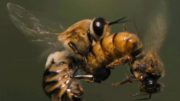
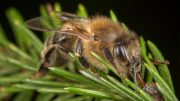
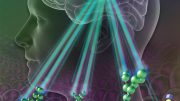
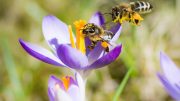
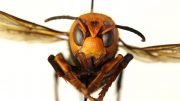
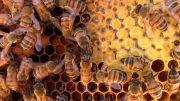

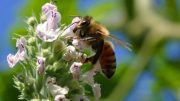
Be the first to comment on "This Sugar Kills Honeybees – It Could Also Be Our Secret Weapon Against Cancer"